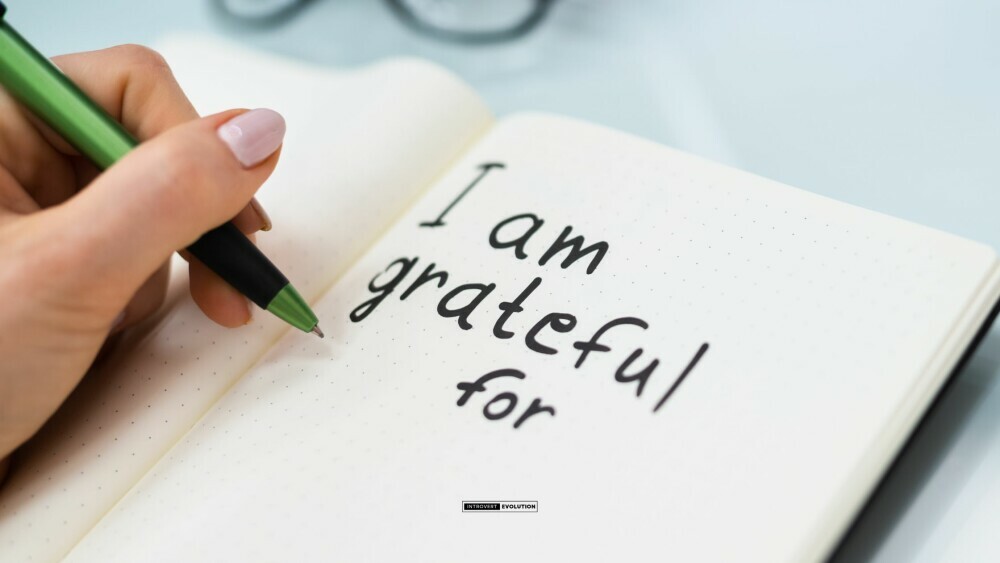
Introduction
In today’s fast-paced world, where the demands of daily life often overshadow moments of introspection, journaling emerges as a powerful tool for personal growth and self-discovery. This age-old practice of documenting thoughts, feelings, and experiences significantly enhances self-awareness, emotional well-being, and overall life satisfaction. It offers a unique opportunity for personal reflection and growth. In this article, we delve into the transformative power of reflection through journaling, exploring its benefits, techniques, and tips for maximizing its potential.

Understanding the Essence of Journaling
At its core, journaling is regularly writing down one’s thoughts and feelings. It serves as a private space where individuals can express themselves freely without fear of judgment. This practice can take various forms, including traditional diary entries, bullet journaling, gratitude journals, and reflective journals. Each type offers unique benefits, catering to different needs and preferences and ensuring a journaling method for everyone.
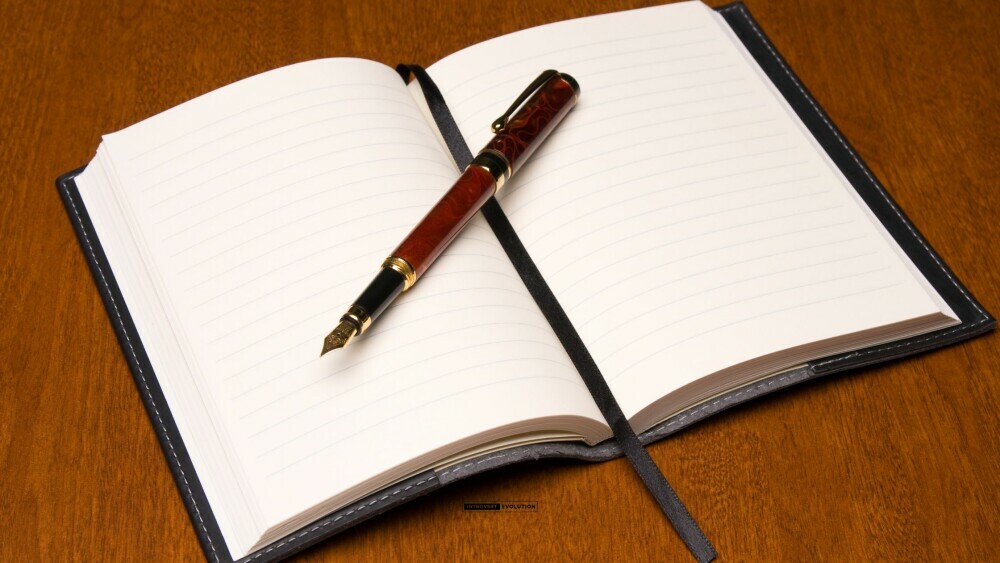 Various types of journals cater to different needs and preferences.
Various types of journals cater to different needs and preferences.
Consider investing in a quality journal or notebook to begin your journaling journey. Here are a few top recommendations:
- Leuchtturm1917 Medium A5 Dotted Hardcover Notebook
- Moleskine Classic Notebook, Hard Cover, Large
- Paper age Lined Journal Notebook
The Benefits of Journaling for Personal Growth
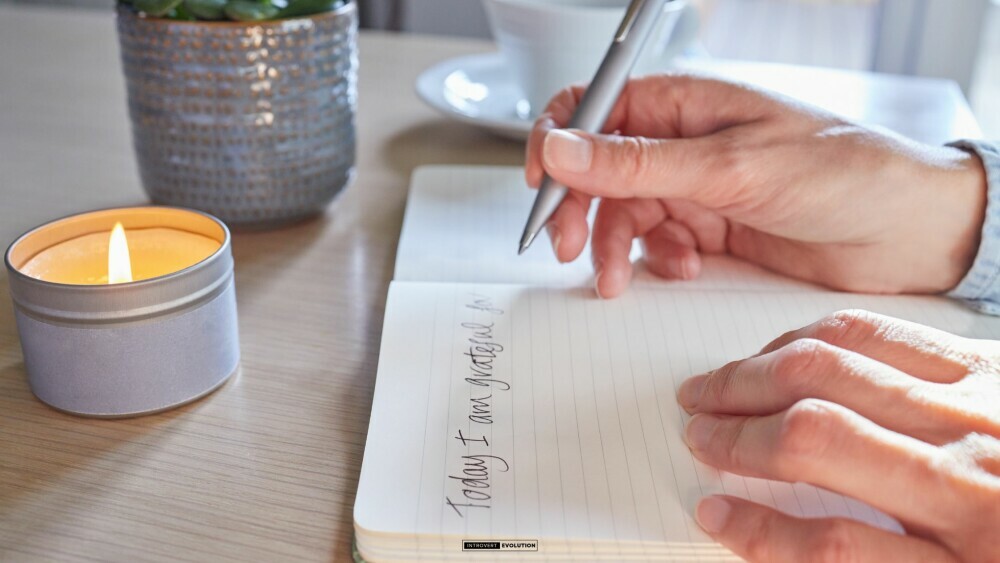 Journaling offers numerous benefits, including enhanced self-awareness and emotional regulation.
Journaling offers numerous benefits, including enhanced self-awareness and emotional regulation.
Enhanced Self-Awareness
Journaling encourages individuals to explore their innermost thoughts and feelings. By regularly documenting experiences and emotions, one can identify recurring patterns, triggers, and areas for improvement. This heightened self-awareness is the first step towards meaningful personal growth.
Emotional Regulation
Writing about one’s emotions helps in processing and managing them effectively. It provides a healthy outlet for expressing anger, sadness, joy, and other feelings, reducing the likelihood of emotional overwhelm. This practice can lead to improved emotional stability and resilience.
Stress Reduction
Journaling has been shown to reduce stress levels by providing a means to vent and release pent-up emotions. Writing can be cathartic, allowing individuals to unburden themselves from daily stresses and anxieties.
Goal Setting and Achievement
Documenting goals in a journal can significantly enhance one’s ability. Individuals can maintain focus and motivation by breaking goals into smaller, manageable tasks and tracking progress. Journaling also provides a space to reflect on setbacks and plan for overcoming obstacles.
Enhanced Creativity
Journaling’s free-flowing nature stimulates creative thinking. It encourages individuals to explore new ideas, brainstorm solutions to problems, and engage in imaginative thinking. This creative boost can be beneficial in both personal and professional life.
To enhance your journaling experience, using quality pens can make writing more enjoyable.
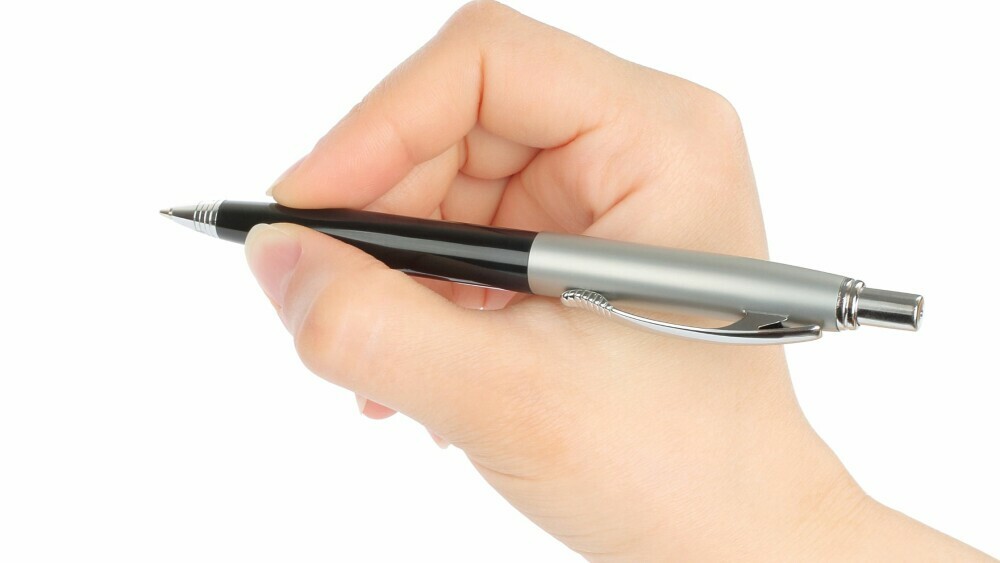 Using quality pens can make the journaling experience more enjoyable.
Using quality pens can make the journaling experience more enjoyable.
Consider these options:
Techniques for Effective Journaling
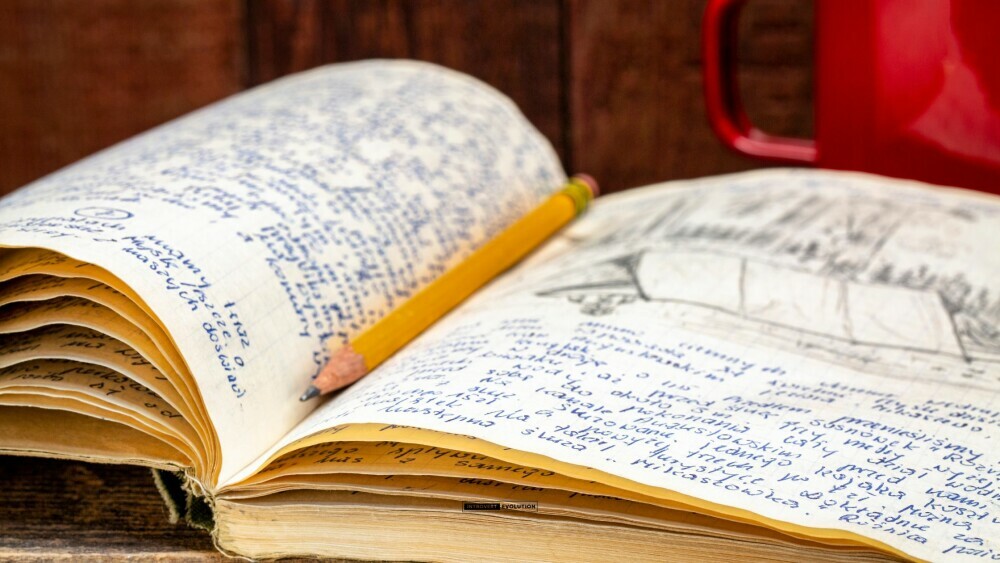 Various techniques can enhance the journaling experience.
Various techniques can enhance the journaling experience.
Free Writing
This technique involves writing continuously without worrying about grammar, punctuation, or coherence. The goal is to let thoughts flow freely, capturing whatever comes to mind. This method can help in uncovering subconscious thoughts and feelings.
Prompt-Based Journaling
Another effective technique is prompt-based journaling. Using prompts can provide direction and structure to journaling sessions. Prompts can be questions, quotes, or statements that inspire reflection. For example, ‘What am I grateful for today?’ or ‘What challenges did I face this week?’ These prompts can guide your thoughts and help you delve deeper into your experiences.
Gratitude Journaling
Focusing on gratitude can shift one’s perspective towards positivity. Each day, write down three things you are grateful for. This practice can enhance overall happiness and foster a positive mindset.
Reflective Journaling
Reflect on specific experiences or events and analyze them in detail. Consider what happened, how you felt, and what you learned from the experience. This deep reflection can lead to valuable insights and personal growth.
Bullet Journaling
This method combines organization with creativity. Bullet journaling, using symbols, bullets, and short sentences, allows you to track tasks, goals, and thoughts in a way that suits your individual preferences. It’s a flexible and customizable approach that puts you in control of your journaling experience.
For those interested in gratitude journals, here are some options:
Tips for Maximizing the Benefits of Journaling
 Creating a comfortable environment can enhance your journaling practice.
Creating a comfortable environment can enhance your journaling practice.
Consistency is Key
Writing regularly is essential to reaping the full benefits of journaling. Set aside a specific time each day or week for journaling. Consistency helps form a habit and ensures continuous personal growth.
Create a Comfortable Environment
Choose a quiet and comfortable place for journaling. This environment should be free from distractions, allowing you to focus entirely on your thoughts and reflections.
Be Honest and Authentic
Journaling is a personal practice, and honesty is crucial. Write authentically about your feelings, experiences, and thoughts. Authenticity fosters more profound self-discovery and emotional release.
Embrace Imperfection
There is no right or wrong way to journal. Embrace the imperfections in your writing, focus on the process rather than the outcome, and allow yourself the freedom to explore and express without self-criticism.
Review and Reflect
Periodically review your journal entries. Reflect on your growth, recurring themes, and insights gained over time. This practice can provide a profound sense of accomplishment, highlighting your journey and inspiring further development.
For those interested in digital journaling tools, these products can be beneficial:
Overcoming Common Barriers to Journaling
 Overcoming common barriers can help maintain a consistent journaling practice.
Overcoming common barriers can help maintain a consistent journaling practice.
Time Constraints
Many individuals believe they lack the time to journal. However, even a few minutes of writing each day can be beneficial. Start with short entries and gradually increase the duration as it becomes a habit.
Fear of Judgment
Some people fear that others might read their journals. To overcome this, choose a secure place to store your journal or use digital tools with password protection. Remember, journaling is a private practice meant for your eyes only.
Writer’s Block
It’s normal to experience writer’s block when starting. Use prompts or start writing about your day or a recent experience. The act of writing will eventually stimulate more thoughts and ideas. Remember, everyone experiences this, and it’s just a temporary hurdle in your journaling journey.
Perfectionism
Perfectionism can hinder the journaling process. Remember that journaling is not about producing perfect content but self-expression and reflection. Let go of the need for perfection and focus on the practice’s benefits.
The Science Behind Journaling and Personal Growth
 Scientific research supports the psychological and emotional benefits of journaling.
Scientific research supports the psychological and emotional benefits of journaling.
Several studies support the psychological and emotional benefits of journaling. Research indicates that expressive writing can boost immune function, reduce symptoms of depression and anxiety, and improve emphasizing health. Psychologists advocate journaling as a therapeutic tool, highlighting its role in cognitive restructuring and emotional processing.
Cognitive Restructuring
Journaling can help individuals reframe negative thoughts and develop a more positive outlook. By documenting and analyzing negative experiences, one can challenge irrational beliefs and replace them with healthier perspectives.
Emotional Processing
Writing about traumatic or stressful experiences allows individuals to process and make sense of their emotions. This process can reduce the emotional intensity associated with these experiences, promoting healing and recovery.
Behavioural Activation
Journaling can motivate individuals to engage in positive activities and behaviours. Setting goals and tracking progress can create a sense of accountability and drive towards personal achievements.
For those looking for reflective journals, these options can be highly beneficial:
Different Forms of Journaling and Their Unique Benefits
 Different forms of journaling offer unique benefits.
Different forms of journaling offer unique benefits.
Mindfulness Journaling
This form of journaling involves writing with a focus on the present moment. It encourages individuals to observe their thoughts and feelings without judgment, promoting mindfulness and a deeper connection with oneself.
Art Journaling
Combining creativity with reflection, art journaling allows individuals to express their thoughts and emotions through drawings, paintings, and collages. This method can be particularly therapeutic for those who struggle to articulate their feelings through words alone.
Dream journaling
Analyzing dreams can provide insights into one’s subconscious mind. Individuals can better understand their fears, desires, and unresolved issues by analyzing dream patterns and symbols.
Travel Journaling
Travel journaling involves documenting experiences, reflections, and observations during trips. It helps individuals preserve memories and reflect on personal growth resulting from their travels.
For mindfulness and meditation aids to complement your journaling practice, consider these products:
Practical Tips for Starting and Maintaining a Journaling Practice
 Practical tips can help you start and maintain a consistent journaling practice.
Practical tips can help you start and maintain a consistent journaling practice.
Start Small
If you are new to journaling, start with short entries. Gradually increase the length and depth of your writing as you become more comfortable with the practice.
Set Intentions
Begin each journaling session by setting an intention or goal. This can help focus your thoughts and provide direction to your writing.
Use Technology
Digital journaling tools and apps can be convenient for those who prefer typing over handwriting. Many apps offer Visualization prompts and password tracking.
Incorporate Visualization
Covisualizing with visualization techniques. Write about your ideal future, visualize your goals, and describe the steps you need to take to achieve them.
Join a Community
Join online or local journaling groups. Sharing experiences and receiving support from others can enhance your journaling practice and motivate you.
Conclusion
Journaling is a transformative practice that can lead to profound personal growth and self-discovery. By regularly reflecting on thoughts, feelings, and experiences, individuals can enhance self-awareness, emotional well-being, and creativity. Using various journaling techniques and overcoming common barriers can maximize the benefits of this powerful tool. Embrace the power of reflection through journaling and embark on a journey towards a more fulfilling and enriched life.
 Embrace the power of journaling for a more fulfilling and enriched life.
Embrace the power of journaling for a more fulfilling and enriched life.
Recommended Journaling Products
To help you get started with your journaling journey, here are some highly recommended products available on Amazon:
- Leuchtturm1917 Medium A5 Dotted Hardcover Notebook – A high-quality journal perfect for all types of journaling.
- Moleskine Classic Notebook, Hard Cover, Large – A classic choice for those who prefer a traditional notebook.
- Paperage Lined Journal Notebook – An affordable and reliable option for daily journaling.
- Pilot G2 Retractable Gel Pens – Smooth and comfortable pens for an enjoyable writing experience.
- Tombow Dual Brush Pens – Great for adding colour and creativity to your journal.
- Sharpie S-Gel, Gel Pens – Ideal for bold and clear writing.
Recommended Digital Journaling Products
In addition to traditional journals and pens, digital tools can significantly enhance your journaling practice, offering convenience and added features. Here are some top digital journaling products available on Amazon:
- Rocketbook Smart Reusable Notebook – This innovative notebook allows you to write, scan, and reuse, making it perfect for eco-friendly journaling.
- Boogie Board Blackboard Writing Tablet – A versatile digital writing tablet that feels like writing on paper and is great for quick notes and sketches.
- Wacom Bamboo Slate Smartpad Digital Notebook – This smartpad converts your handwritten notes into digital files, making it easy to organize and share your journal entries.
- Moleskine Pen+ Ellipse Smart Writing Set – A sophisticated smart writing set that instantly digitizes your notes and sketches, offering seamless integration with your digital devices.
- Day One Journal App – A highly-rated digital journaling app that offers powerful features for writing, organizing, and reflecting on your journal entries (note: available for download, not on Amazon).
- Evernote – A popular app for taking notes and organizing your thoughts, suitable for digital journaling and available on multiple platforms (note: available for download, not on Amazon).
Thank you for your time, and I hope you found this article helpful; if you have any questions about it, please leave a comment below or feel free to contact me on contact us! Page.
Have a great day!




Journaling is not something that I have done in the past, although I have watched my wife religiously keep a weekly record in her book. She occasionally reads me extracts from her thoughts that she wrote a few years ago. I have always looked upon her work as her keeping a diary, but it would appear that she has written her innermost thoughts on several subjects. So what is the difference between journaling and keeping a diary? Your article has got me thinking that I may like to follow your lead. Thanks
Hi
Thank you for sharing your experience and for your thoughtful comment. It’s lovely to hear about your wife’s dedication to keeping a weekly record in her book and how she shares her reflections with you.
The distinction between journaling and keeping a diary can sometimes be subtle. Still, a diary is often more focused on recording daily events and activities, while journaling delves deeper into personal thoughts, feelings, and reflections. Journaling can be more reflective, aiming to understand one’s inner self and promote personal growth.
I’m glad my article has sparked your interest in journaling. If you decide to try it, you might find it a rewarding and enlightening practice. Feel free to reach out if you have any questions or need tips on getting started.
Best regards,
Vlad
Hi,
Interesting post. I have never been very good at journaling. You may have hit on some of my hesitation to start. There have been seasons of my life when I have journaled for a short period. Here are some thoughts I gathered from your post:
Reflection journaling has indeed been a transformative practice for many. The act of regularly documenting thoughts, feelings, and experiences helps us understand our inner selves better and promotes emotional well-being and personal growth. By providing a private space to express freely without judgment, journaling enables us to recognize patterns, set goals, and process emotions effectively. It’s a journey of self-discovery that can lead to profound insights and a more fulfilling life. What are some specific prompts or techniques you have found most effective in your journaling practice?
– Scott
Hi Scott,
Thank you for your thoughtful comment and for sharing your reflections. I’m glad you found the post interesting and resonated with some of your experiences with journaling.
Journaling can indeed be a powerful tool for self-discovery and personal growth. Regarding specific prompts and techniques, here are a few that I’ve found particularly compelling:
Gratitude Journaling: Write down three things you are grateful for each day. This practice can shift your focus to the positive aspects of your life and enhance your overall happiness.Reflection Prompts: Use prompts like “What was the highlight of my day?” or “What challenges did I face today and how did I overcome them?” to encourage deeper reflection on daily experiences.Goal Setting: Document your short-term and long-term goals. Break them down into smaller, manageable tasks and track your progress regularly.Free Writing: Set a timer for 10-15 minutes and write continuously without worrying about grammar or punctuation. This can help you uncover subconscious thoughts and feelings.Emotion Tracking: Write about your emotions in detail. Describe your feelings, why you think you feel that way, and any patterns you notice.
I hope you find these techniques helpful. Feel free to reach out if you have any more questions or need further inspiration.
Best regards,
Vlad
Although I have had several journals over the years, I have not recently journaled consistently and your article is a good wake up call for me. I appreciate gaining a greater understanding of the essence of journaling. I always enjoyed having purchased a high-quality journal to reinforce the significance of this practice. I have found that I have benefited most from enhanced creativity as it has a way of igniting my intuition. I appreciate the tips on maximizing the benefits of journaling that you spelled out very well. You have provided a wealth of information here and I will save your article to share.
Hi Joseph,
Thank you so much for your thoughtful comment and kind words. I’m delighted that my article has served as a wake-up call for you to return to consistent journaling. It’s lovely that you’ve found joy and significance in using high-quality journals – they can make the practice feel even more special.
I’m glad journaling has enhanced your creativity and ignited your intuition. It’s amazing how putting pen to paper can unlock such powerful insights. I’m pleased you found the tips on maximizing the benefits of journaling helpful.
Thank you for considering saving and sharing the article. Feel free to reach out if you have any more questions or need further inspiration.
Best regards,
Vlad
Thank you, Vlad. Journaling is something that I have done in the past but gotten away from. I do a lot of creative writing, especially on my website Affiliate freedom zone but I haven’t used my journaling gifts in such a long time. Your article here stresses the importance of journaling. I also have noted that the Bible emphasizes journaling in many areas, such as Habakkuk 2:2 ‘write the vision and make it plain on tablets’. This post has inspired me to start my journaling once again.it is very well written and the illustrations are superb.
Hi Walter,
Thank you so much for your kind words and for sharing your journey with journaling. I’m delighted to hear that my article has inspired you to pick up journaling again. It’s interesting how you connected it to Habakkuk 2:2 – writing down our thoughts and visions has a timeless significance.
If you ever need more tips or ideas on journaling, feel free to contact me. I wish you all the best as you rediscover the benefits of journaling!
Best regards,
Vlad
Hi, thanks for the informative blog. What do you think is the most compelling common block to people starting to journal? My biggest concern is as you mentioned someone finding my journal as it is extremely personal thoughts and feelings that I may not want others to know. I have heard of journaling helping with self development and I imagine the act of putting your thoughts on to paper helps you to clarify what they are exactly. Giving clarity. Do you think this is the case or am I barking up the wrong tree? Thanks
Hi
Thank you for your thoughtful comment and for reading my blog! I’m glad you found the article informative.
As you’ve mentioned, the most compelling standard block to starting a journal is often the fear of someone finding and reading it. This concern is valid, especially when journaling involves deeply personal thoughts and feelings. One way to address this is by choosing a secure place to store your journal or using digital journaling tools with password protection.
You’re right about journaling providing clarity. Writing down your thoughts can help you organize and understand them better, leading to greater self-awareness and personal growth. It’s a powerful way to reflect and gain insights into your mind.
Feel free to ask if you have any more questions or need further advice on starting your journaling journey.
Best regards
“The Power of Reflection: Journaling for Personal Growth” is a well-rounded and inspiring piece that successfully highlights the transformative potential of journaling. It offers a balanced mix of practical advice, scientific backing, and diverse journaling approaches, making it an excellent resource for anyone interested in exploring journaling as a tool for personal growth. With a few additional touches to enhance engagement and provide deeper insights, this article could serve as a definitive guide for both novice and experienced journalers.
Thank you for your thoughtful and encouraging feedback on my article, “The Power of Reflection: Journaling for Personal Growth.” I’m delighted you found the mix of practical advice, scientific backing, and diverse journaling approaches inspiring and valuable.
I greatly appreciate your suggestion to add more touches for deeper insights and engagement. If you have any specific ideas or topics you’d like to see expanded, please feel free to share them. I’m always looking for ways to improve and provide more value.
Thank you again for your kind words and support!